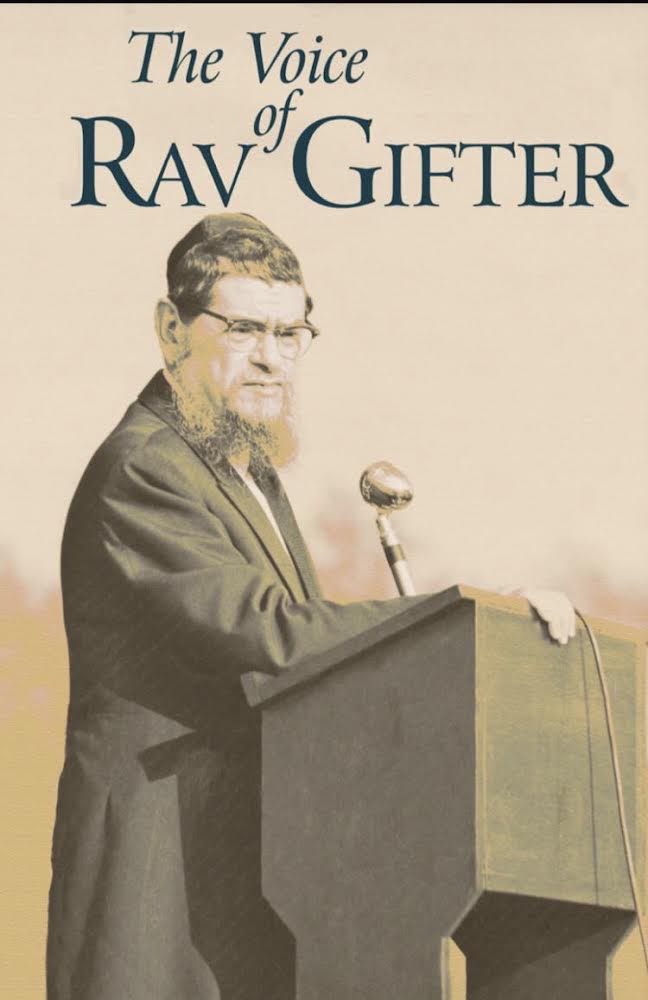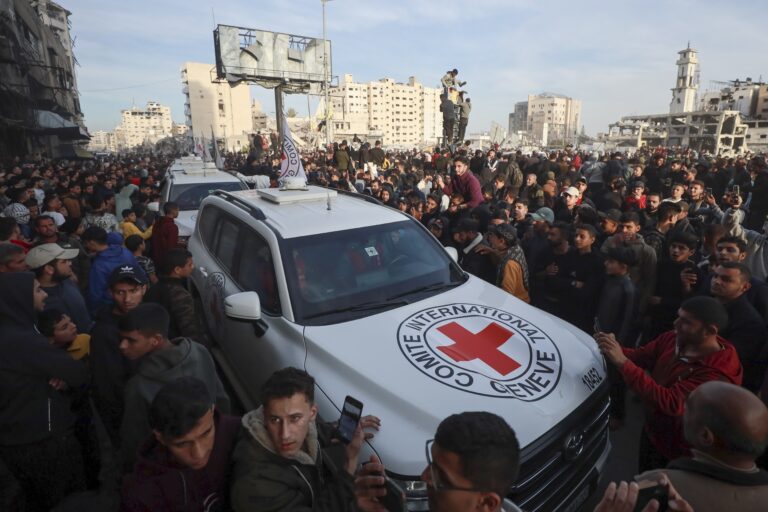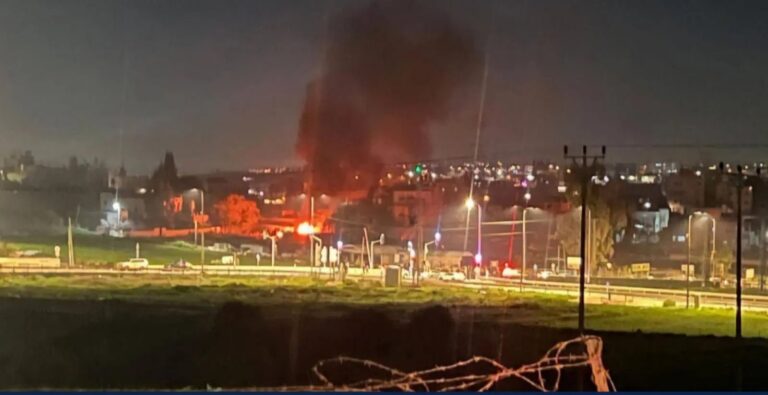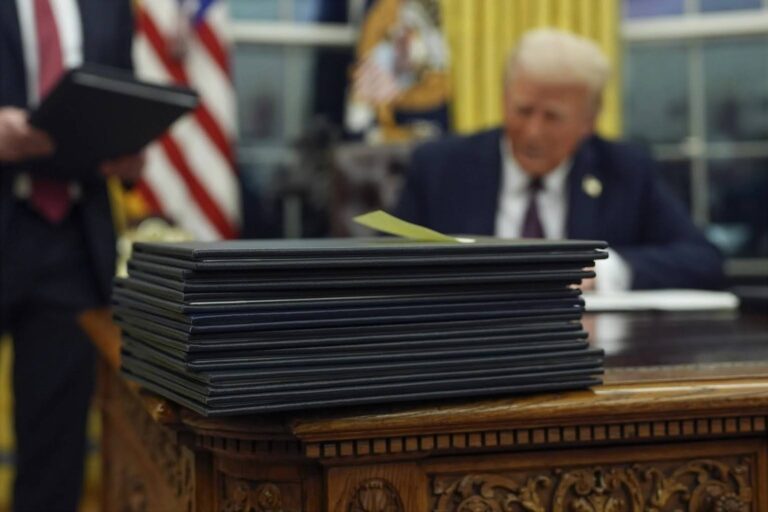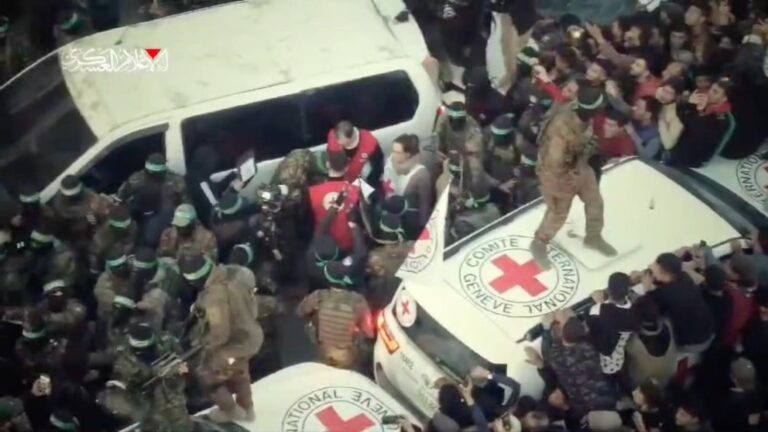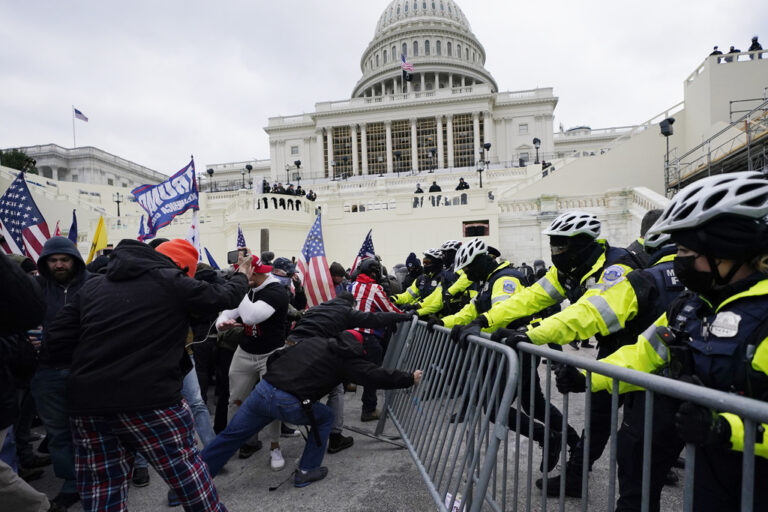Hashem said through the Prophet Isaiah (62:1): “For the sake of Zion I will not hold My peace and for the sake of Jerusalem I will not be still.” The Targum’s interpretation of this verse casts a brilliant light on the current world situation: Hashem pledges that until Zion and Jerusalem are peaceful and secure, He will allow no rest to the nations of the earth. The situation of the Jewish people cannot be viewed in a vacuum, separate and apart from the world order.
We are in the habit of scanning the long list of international crises and feeling that the situation of our beleaguered brothers in Eretz Yisroel would matter precious little to anyone except fellow Jews, were it not for the ever-present danger of a superpower confrontation. Energy crises, floundering Great Britain, Watergate and its threat to the American political system, French recalcitrance in Europe, Russo Chinese hostility, the sanguinary “cease-fire” in Vietnam, and the list goes on and on. People who see things in “perspective” are well aware that in terms of “the big picture” a few pieces of real estate in Sinai and Golan are of little significance on the larger landscape. So on the one hand; we are grateful that the physical survival of three million Jews in Israel is interwoven in the fabric of American-Russian relations; hence, it is important enough to demand the notice of the White House and the Kremlin. But on the other hand, we tremble in anticipation of possible Jewish sacrifices upon the altar of detente and increased petroleum production.
Isaiah tells us we are wrong. Eretz Yisroel is not simply one problem in isolation of myriad world problems; it is a major source of world problems. Hashem has made a pledge that as long as Zion and Jerusalem live in crises and fear, the world will have no rest. Japan will falter and suffer loss of face. Great Britain will rock with domestic instability and a trade imbalance that boggles the mind. The United States will be told that it must curb its energy appetite and change its life-style. Why? Because the Supreme Being will allow rest and security to no nation as long as His most favored nation is threatened. It was no coincidence that Vietnam threatened to erupt again shortly after the Yom Kippur War, or that Europe, France and the United States descended to levels of petty squabbling unmatched since the trade wars of two generations ago; that political upheaval has threatened almost every major power these past months. Hashem will not be silent to others so long as they look with apathy or antipathy upon the tribulations of Zion and Jerusalem.
When we agonize over Eretz Yisroel, we are contemplating not only the Holy Land, but the entire universe, just as the heart surgeon knows that his area of specialization controls life itself. Indeed, the stakes are even higher than that. The Prophetess Devorah curses those who did not come to the aid of her forces as they battled the hordes of Sisera “because they did not come to the help of the L-rd, to the help of the L-rd against the mighty men” (Judges 5:23). Rashi explains that whoever helps the Jews is as though he had helped G-d Himself. Our Sages comment on this same verse that whoever attacks the Jewish people wages war against the Creator, as it were; hence, whoever defends Jews, defends the Creator (Sifri, Beha’aloscha).
This, then, is the true perspective with which we must view not only the Yom Kippur War, but the entire pattern of world history. The Chofetz Chaim said when the Russo-Japanese War broke out, “This war is a message to Jews. We may not know what it is telling us, but there is no doubt that we must learn something from it, because Chazal taught us that “ein puranius ba’ah le’olam ella bishvil Yisroel – no world catastrophe strikes but for Klal Yisroel.” By the same token, whenever there is a major catastrophe in India, a bloodbath in Russia – we must always see in it a Divine message to Jews – a call for improvement and repentance. Surely when the cataclysmic events center on Eretz Yisroel itself, we must see in them a heavenly call.
In the immediate aftermath of the Yom Kippur War, there had been an uncontrollable tendency to sigh with relief – even to applaud a military victory that, in many ways, dwarfed the triumph of the Six Day War. This superficial reaction was quickly overtaken with grief and a wave of fault-fixing. Over two thousand lives were taken from a nation which has been taught since its inception that “saving a Jewish life is the equivalent of saving the whole world.” The wounded number in the thousands – precious Jewish souls who will never see again, never walk again – whose bodies, sometimes even minds, will never be whole again. Sadat takes his losses with equanimity; he invests freely many thousands more to win the right to hold his head high. Lives may matter precious little to others; but for us, the loss of each of the twenty-five hundred is a catastrophe.
We must be conditioned to see the Hand of G-d in all events – especially in catastrophe. – “He [G-d] has called an assembly (moed) against me to crush my young men” (Eichah 1:5), the Prophet Jeremiah laments. Because the verse describes Tishah B’Av as a moed, a term the Torah reserves for festivals – we do not say the Tachanun prayer on that day, as though it were indeed a festival! My Rebbe, the Telshe Rav zt’l, explains that this day of greatest national tragedy is indeed a moed, for the word refers to a time when G-d meets His people in a holy assembly, a time when we are privileged to see the Hand of Hashem … We saw it when He redeemed us from Mitzrayim, and again when He gave us the Torah. And we saw it, too, when He rained destruction and suffering upon us on Tishah B’Av. The churban Beis Hamikdash was not the type of occurrence that could be likened to scores of other disasters that fill the pages of human history. It was obviously a heavenly act of retribution, the fulfillment of too many unheeded prophetic warnings. It was awesome and terrible. But it was still moed, an opportunity for the Jewish people to meet its Maker.
The Yom Kippur War, too, is a moed in its own way. Hashem Yisborach is calling us, making demands upon us. It is for us to decipher the message and act upon it. Many are quick to blame the non-religious for all our woes. “Their sins caused the tragedy and still they refuse to learn their lesson from G-d’s anger at them!” Let us stop looking at others and peer deep into ourselves. Let there be no mistake. The heavenly call comes not to non-believers; it is coming to those of the Am Hashem who know that our mission on earth is embodied in the Torah.
After the deluge, Hashem showed Noach the rainbow and told him that the rainbow would forever serve as a sign of the Divine covenant that such a flood would never again take place. The Sforno explains that from then on, the rainbow would be a heavenly sign to the righteous people that their generation has sinned and that it is their duty to teach and chastise their straying generation. He goes on to explain that when the righteous have perceived G-d’s signal and done what is expected of them, G-d will take notice of the prayers of the righteous and withdraw His wrath from the human race. Let us mark well the illuminating words of the Sforno: The heavenly call is to the righteous of the generation – not to the sinners. The sinners cannot hear the call; they look at the rainbow and see but a colorful spectrum. Their spiritual senses are deadened. But the righteous of the generation can hear and see; and they can interpret the heavenly sign. It is to them that G-d calls, and it is for them to respond by praying, coming closer to Torah, and trying to bring others along with them. This is not some abstract sort of obligation, a vague injunction to “do good and be good.” Hashem expects us to strive for higher goals, and the penalties for not doing so can sometimes be enormous. King David once erred in ordering a census to be taken improperly. As a result, a plague broke out resulting in seventy thousand deaths (l Samuel 11:24).
Our Sages explain the reason for so severe a punishment: All seventy thousand men who died in the time of King David did so because they did not request the building of a Bais Hamikdash. If this was so serious a sin for them people who never had a Bais Hamikdash, how much more so for us – who did have it and had it destroyed – if we do not beseech G-d in His mercy to rebuild it. Therefore, the righteous men of old established the blessing for the rebuilding of Jerusalem which is said three times daily in Shemoneh Esrei (Medrash Tehillim 17). Obviously, bigger things are expected of us than we sometimes are willing to acknowledge. It is not sufficient to go about our everyday affairs even when they include performance of mitzvos and study of Torah. Business as usual might be adequate in usual times, but these are not ordinary times for the Jewish people. If we were deluded into thinking so before, we surely cannot go on thinking so in the wake of the Yom Kippur War. Now, more than ever, is the time to heed the heavenly signs that demand of us that we shake ourselves loose from our lethargy and exert maximum efforts to strengthen our commitment to Torah. If, at a time like this, we persist in counting Phantoms, discussing the tactics and motives of Dr. Kissinger, and pin our hopes on the survival in office and the continued initiatives of President Nixon, then we are clearly conveying a lack of comprehension of the Divine message.
A mishnah in the Tractate Keilim, chapter 17, says: “All items made from fish and other sea life cannot be rendered ritually impure”; the Torah ordains that only land animals and fowl are subject to impurity. “There is one exception to this rule,” the mishnah continues. “It is kelev sheba’yam – a sea lion.” Why is the sea lion different? Because when it is in danger, it flees to dry land – proving that, despite its habitation of the seas, it is basically a land animal.
Rav Tzadok Hakohen of Lublin draws an incisive moral lesson from this mishnah. If we want to determine someone’s true character, we must observe him in time of crisis. People may preach loyalty to Torah and absolute belief in Hashem, but even they cannot know how sincere their preachments are until they are challenged by events. What happens to the honesty of a businessman if he perceives truth as costing him dearly … does he put Torah imperatives above expediency and profit? What happens to the faith of the observant Jew when a dear one is deathly ill – does he hang only onto his doctor’s word, or does he know that his Tehillim is more potent than a prescription pad? And where was each of us when our brothers and sisters in Eretz Yisroel were in mortal danger – and where are we now when the danger is less obvious, but still present? It is now that we are being tested. These are the times when we can turn the tide by extra hours of Torah study, extra tefillah and extra tzedakah, a deeper commitment to a Torah way of life.
The signs have been given to us. Reliance on the morality of statesmen, on international law, on the United States have all been shown to be the slenderest of reeds. We are in the most precarious of bargaining positions by all the accepted laws of politics. The Zionist dream of a nation like all nations has been forever shattered; Israel has become a client state of the United States and it will take nothing more than a withdrawal of the American defense commitment to bring the Arab hordes in for the final kill. “Who can predict how another American administration will define its foreign policy objectives, or what uncertain gasoline supplies and ballooning prices will do to American public opinion? There is already increasing support for the “rights of the Palestinians”; and the Arab states are only beginning to learn how to exploit the techniques of the sophisticated, civilized public relations, winning support from the man in the street.
The frightening list can be continued, but the point should already be clear. Whatever other lessons the Yom Kippur War may hold, it certainly cries out to us that we are a people in danger and that we must choose our refuge. If we expect to find it by seeing what the political pundits have to say, where the Gallup Polls point, what Dr. Kissinger is saying between the lines, and so on, then we are demonstrating that, when the chips are down, we are as secular and materialistic as those whom we so often decry. If, on the other hand, we turn to the Bais Hamedrash and Bais Haknesses when we are endangered, then we are showing that we are truly worthy of being called the nation of Hashem.
As the Sforno points out in his commentary on Noah’s rainbow, the heavenly sign is not a call to the broad, unseeing masses of humanity. Rather, it is directed specifically toward those who are capable of seeing, understanding, and acting upon it. We have no right to let ourselves be swept away by waves of media reportage on the superficialities of war and survival. Its true story will not be formed in yesterday’s military strategy (the Bar Lev Line was weak, the Arabs failed to win because they employed classic Russian tank strategy, and so on, ad infinitum) or tomorrow’s negotiating ploys in Geneva. Its true story was written millennia ago in the Scriptures and Talmud. Victory and defeat are in the Hands of G-d, and we can direct those Hands by our Torah and tefillah.
When we look at a faraway war through Torah binoculars, then it truly becomes part of an immediate experience. Every one of us has the responsibility to be at the front in the Torah’s terms. Devorah the Prophetess mercilessly castigated those tribes and individuals who did not come to help. Where was Reuven? … Why did Dan remain by its ships? Asher stayed by its safe seashore … Mairoz is accursed … There was a mobilization and they were found wanting … for their reticence there is no forgiveness. Their people needed them, but they didn’t come. Devorah, mother of her people, can find no justification for her wayward children.
But there were others who likewise were not to be found in the infantry. For them, Devorah had only praise, because they joined the battle in their own way, in an enormously significant way. “My heart goes out to the lawgivers of Israel.” she said, “that offered themselves willingly among the people, Bless the L-rd!” The Targum beautifully illuminates her gratitude to the lawgivers: Devorah said that she was G-d’s agent to praise the Torah sages. During the years of alien oppression, they never stopped teaching the Torah, so it is fitting that they should now sit in the place of honor in the study halls expounding the Torah, blessing and thanking G-d. They sacrificed their personal interests to go about the land, teaching, and joining to form courts when the law had to be decided (Shoftim 5: 9, 10).
Her words are directed at our generation as much as her own. When Jews are in danger, the mobilization must be complete, all inclusive. Everyone who can help must help. But ultimately, the forces of evil are attacking G-d Himself when they bare their fangs at Israel. In a battle against G-d, our most powerful weapons are Torah and mitzvos. The Sages who ignored odds, public opinion, and inconvenience to study and spread Torah were also part of the army; and Devorah, who knew the reasons for her miraculous victory, gave her heart to them.
We must learn this from the current war, for we failed to learn it from the 1967 War. The cacophony of pronouncements, threats, and soothing statements that fill the airwaves and the newspapers should not deter us from hearing and seeing the truth. The world will continue to be turbulent as long as Eretz Yisroel is threatened, and Eretz Yisroel will continue to be menaced until every single one of us heeds the call to mobilize in the only meaningful way.

